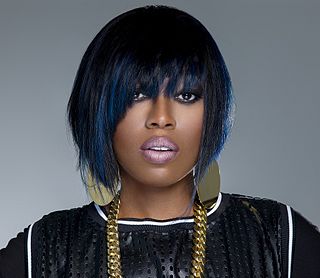A Quote by Steve Harvey
I think that we, as the African-American men in hip-hop, we have a greater responsibly because we have the ears of so many millions of our young people. And they listenin'.
Related Quotes
I think that hip-hop should be spelled with a capital "H," and as one word. It's the name of our black people culture, and it's the name of our identity and consciousness. I think hip-hop is not a product, but a culture. I think rap is a product, but when hip-hop becomes a product, that's slavery, because you're talking about people's souls. To me, that's the biggest problem.
Few places in American culture have made as effective a case for entrepreneurship than hip-hop. Hip-hop tells young people that our society is offering very limited options for youth. And that while society points to a radical decline in living wage jobs for youth and meaningful and affordable education, hip-hop is offering an alternative legitimate economy that is giving youth hope.
I am trying to get folks outside the hip-hop culture to understand why, despite the negatives, young people find hope and refuge in hip-hop. I'm hoping that young people immersed in the culture will work harder to capitalize on the possibilities for great social change that hip-hop represents as a national unified cultural youth movement.
In this time, we incorporate money and media, and it's split up like apartheid, where when you say "hip-hop," you think just rap records. People might have forgot about all the other elements in hip-hop. Now we're back out there again, trying to get people back to the fifth element, the knowledge. To know to respect the whole culture, especially to you radio stations that claim to be hip-hop and you're not, because if you was a hip-hop radio station, why do you just play one aspect of hip-hop and rap, which is gangsta rap?
I think that hip-hop should be spelled with a capital "H," and as one word. It's the name of the culture, and it's the name of the identity and consciousness. I think hip-hop is not a product, but a culture. I think rap is a product, but when hip-hop becomes a product, that's slavery, because you're talking about people's souls.
My definition of hip hop is taking elements from many other spheres of music to make hip hop. Whether it be breakbeat, whether it be the groove and grunt of James Brown or the pickle-pop sounds of Kraftwerk or Yellow Magic Orchestra, hip hop is also part of what they call hip-house now, or trip hop, or even parts of drum n' bass.































